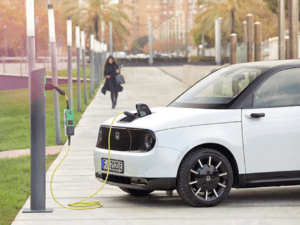
Japan Considers Banning New Gas Car Sales by Mid-2030s

Authorities worldwide are looking for ways to help push the world forward into an age of sustainable transportation, with many putting forth bold commitments to climate action in the auto industry.
On Thursday, Japanese public broadcaster NHK announced that Japan is considering a ban on the sale of new gas cars by the mid-2030s, as reported by Reuters. The target would be ambitious, to be sure, but it’s also right in line with other countries and regions which are trying to do the same in a similar amount of time, like Quebec, Canada, and California in the United States, as just a couple of examples.
In October, Japan’s Prime Minister, Yoshihide Suga, made a vow to cut the country’s carbon emissions to net-zero by 2050. The country’s industry ministry will create a plan to cut carbon emissions by the end of the year, according to chief government spokesperson Katsunobu Kato.
#Japan plans to ban sales of new petrol cars in mid-2030s
▪️The government aims to accelerate decarbonization in the automobile industry in a bid to realize PM Yoshihide Suga's goal of reducing the country's greenhouse gas emissions effectively to zero by 2050. pic.twitter.com/OuhZyYFXjC
— EHA News (@eha_news) December 3, 2020
Japan’s market share of electric vehicles (EVs) is expected to increase to 55% by 2030, according to a global report on EVs from Boston Consulting Group.
In the report, Boston Consulting wrote, “[Worldwide,] the speed of expansion of the share of electric vehicles will accelerate due to the fact that battery prices are falling more rapidly than previously expected.”
With Britain, Canada, parts of the US, Norway, and Germany passing or proposing similar laws banning gas vehicles, it’ll be exciting to see the next few decades as the world continues on into zero-emissions vehicles.

